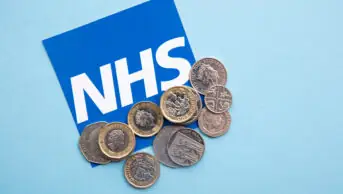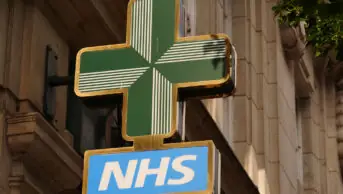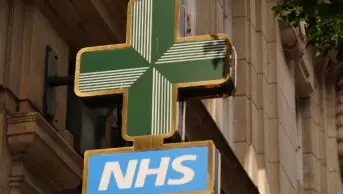
Shutterstock.com
A report commissioned by the National Pharmacy Association (NPA) has warned of a “looming pharmacy collapse” in England that could see thousands of community pharmacies close if the sector does not receive additional funding.
The report, ‘Protecting UK Public Interests in NHS Community Pharmacy‘, written by David Taylor, emeritus professor of pharmaceutical and public health policy at University College London, and Panos Kanavos, associate professor of international health policy at the London School of Economics and Political Science, said the sector is facing an “economic crisis” as rising inflation, combined with static funding, means that community pharmacy remuneration “is already 25% below its 2015 level”.
As a result, the authors noted that if a further £250m was added to the NHS community pharmacy contract sum in 2023, this would bring community pharmacy remuneration back to a level comparable with 2015 and argued that “such an investment would be modest relative to the benefits at stake”.
“Because of high inflation, several thousand English community pharmacies are likely to close during the next few years, unless action to protect public interests in the pharmacy network is taken.
“Such closures would impede medicines supply, threaten treatment safety and reduce opportunities for better NHS care,” the report said.
According to the latest NHS data, published in October 2021, more than 450 community pharmacies closed in 2020/2021, resulting in the lowest number of pharmacies in England since 2015/2016.
When asked at a press briefing how many pharmacies Taylor expected to close, he said it was “in the order of 3,000 but that’s a ‘guestimate’ because you never know; you won’t see this until it’s happened”.
He added: “Any suggestion that we can afford to lose a few thousand pharmacies and things will go on satisfactorily, I think is deeply suspect.”
The report, which was published on 27 September 2022, said that the NHS community pharmacy contract sum fell by 10% between 2015 and 2017, and “since then it has (excluding items like COVID-19 and flu vaccination payments) been constant at £2,592m, with no annual allowance for inflation”.
“Given this situation … the share of total English NHS resources allocated to community pharmacy remuneration will have fallen by about third between 2015 and 2024,” the report continues, adding that “the proportion of total health funding used to provide community pharmacy remuneration will have dropped from circa 2.4% to 1.6% in under a decade”.
The report’s analysis comes after the government and the Pharmaceutical Services Negotiating Committee (PSNC) announced their delayed agreement for the remaining two years of the ‘Community Pharmacy Contractual Framework: 2019 to 2024‘ (CPCF), which includes a one-time write-off of £100m in medicines margin in 2023.
Janet Morrison, chief executive of the PSNC, welcomed the NPA report. “The underlying impact of pharmacy’s flat funding settlement is really starting to bite as economic and capacity pressures increase, and many contractors are having to make tough decisions about what they can do for patients as their income declines in real terms,” she said.
She added that the PSNC was “extremely frustrated at the government’s resolute refusal to move beyond the five-year deal in recent CPCF negotiations”.
“We know the funding situation falls short of what the sector urgently needs so we are continuing to make the case for additional funding very strongly. The more data such as this that we can have to support our case, the better, and it is critical that the sector remains unified in its messaging on this,” she continued.
Thorrun Govind, chair of the Royal Pharmaceutical Society’s English Pharmacy Board, said the report “should sound alarm bells for those looking to maintain patient access to care”.
“Pharmacy teams are already under pressure, and many will be feeling additional strain, both personally and professionally, as we head into winter. Last week, the government looked to community pharmacy to help manage growing demand on the NHS, but this must be supported by sustainable funding,” she said.
“Proposals such as a ‘Pharmacy First’ scheme in England could make a huge difference for patients and I would urge the government to ensure that community pharmacy gets the support and resources it deserves.”


